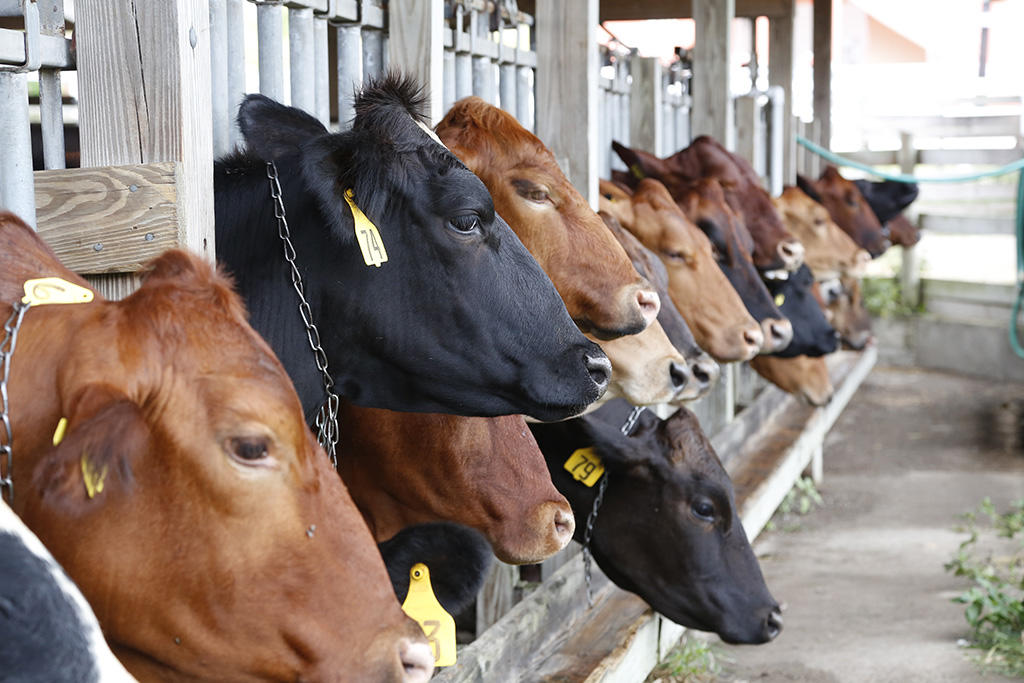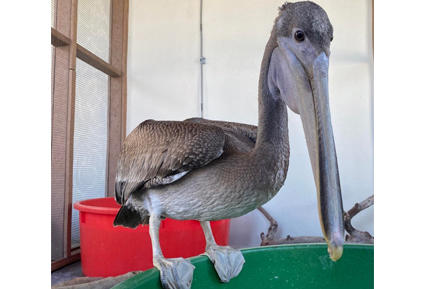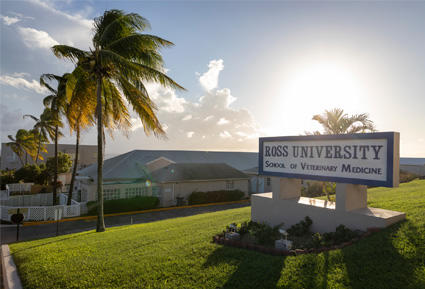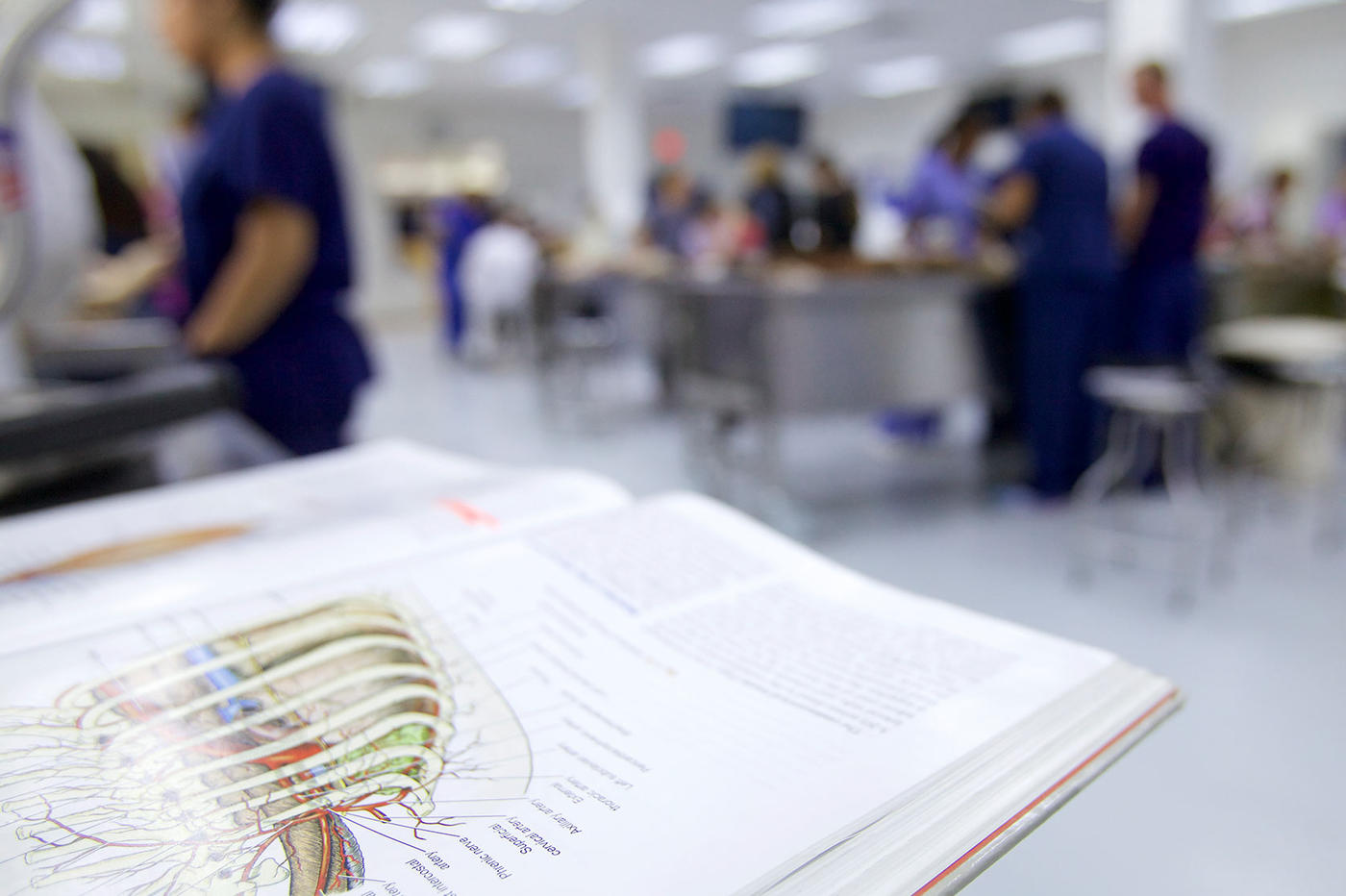The group hosts monthly wellness trips to local farms to provide free veterinary care and farmer education, and recently extended their program beyond St. Kitts to the neighboring island of Nevis.
We caught up with two members of the club’s executive board—Angelique Meixell, president, and Whitney LaShay Jones, secretary—to learn more.
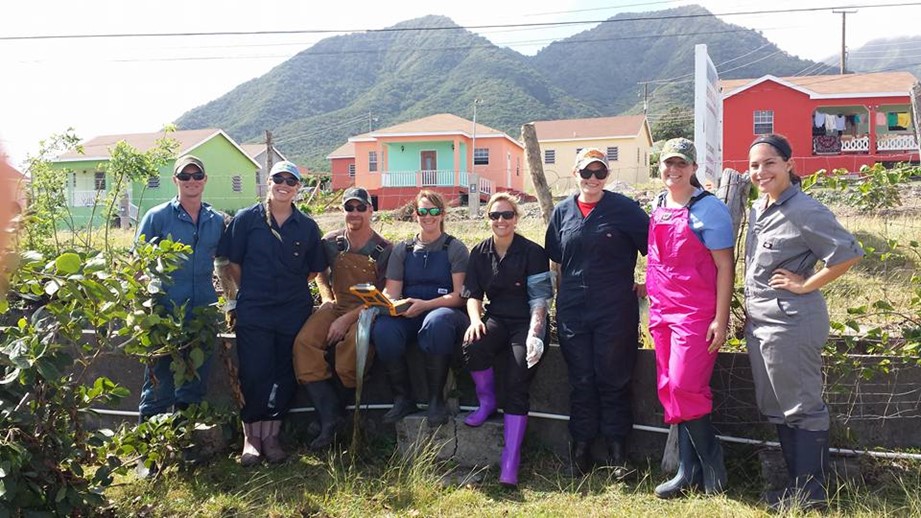 RUSVM: Tell us about the outreach work you’re doing in Nevis.
RUSVM: Tell us about the outreach work you’re doing in Nevis.
Whitney Jones: We were in contact with the Nevis Department of Agriculture through our faculty advisor Dr. Aspinas Chapwanya, and they asked us to help palpate a herd of cattle to check for pregnancies. We palpated more than 40 cows, discussed plans for a more beneficial breeding program for the herds, inspected the chute and field system, and drew up blueprints to help them design and build a new system.
Angelique Meixell: During the trip, we talked to the farm manager, members of the Department of Agriculture and attending veterinarian. When talking about plans for a new chute system, we showed them pictures of the one we built here in St. Kitts. Our chute system is very simple and made out of wood, but it does the job. We balance the practicality with the supplies we have available on the island.
RUSVM: How has the club been contributing to the St. Kitts/Nevis community up until now?
Meixell: This is the first time we’ve ever had the club visit Nevis—until now, our outreach has been done locally in St. Kitts. Now that our club has grown to about 300 members, we have the member capacity and funding to expand beyond our two farms in St. Kitts.
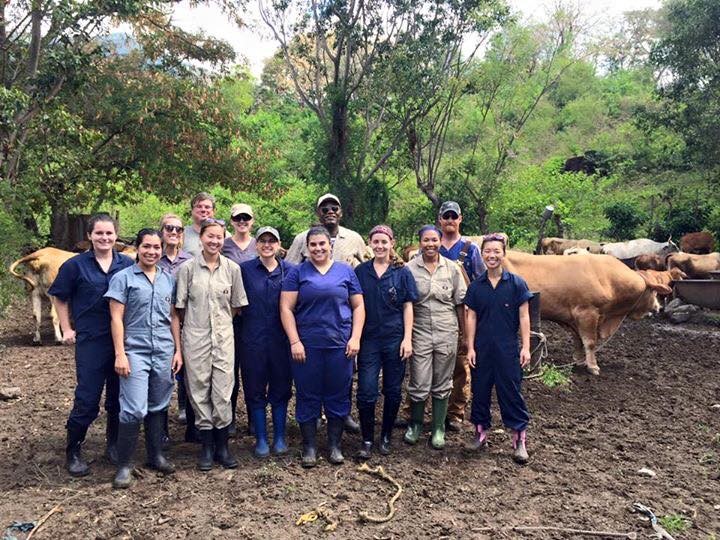
Jones: Our goal is to help improve the care of local island herds, as well as the genetic potential of future herds, by educating local farmers. I love being able to use our knowledge as large animal practitioners to help the farmers improve their husbandry practices for the overall health of the herd.
RUSVM: How does the RUSVM AABP complement students’ coursework and enhance their education?
Meixell: Members can practice their bovine handling/husbandry skills through calf handling sessions twice a week, and are able to form bonds with the calves by grooming and handling them regularly. It’s a win-win relationship—students gain experience by working the calves, while the calves are exposed to brushing/touching, halter breaking and general human contact. Students have the opportunity to be part of the animals’ entire life cycle, including the birth of calves.
Jones: In addition to hands-on experience, the club also hosts lunch lectures and case study dinners to promote deeper understanding of veterinary medicine. Through all the wet labs, palpation trips, calf handling, and guest lectures, we’re contributing to the continuing education and professionalism of our members and student body.
RUSVM: What attracted you to the club?
Meixell: Coming from a long generation of farmers, I love improving agriculture, educating people about it and fostering a positive view of it. Farmers genuinely care about their animals, their well-being and their offspring.
Jones: I grew up in a small farming community in Eastern Kentucky. When I joined AABP here, I immediately knew it would give me the most ideal experience for my future plans as a veterinarian. Through calf handling and other wet labs offered by the club, I was able to jump right into all the hands-on work that I missed at home.



